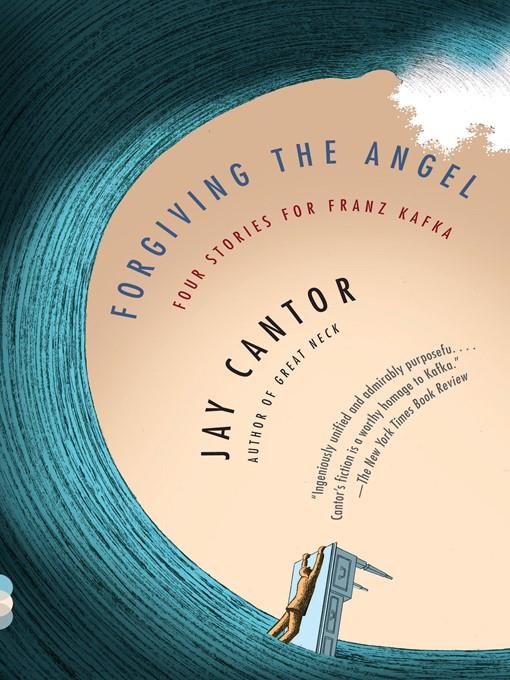
Forgiving the Angel
Four Stories for Franz Kafka
- اطلاعات
- نقد و بررسی
- دیدگاه کاربران
نقد و بررسی

December 15, 2013
A quartet of somber fictions on the surprising influence of Franz Kafka's work and life on those around him. This story collection by Cantor (creative writing/Tufts; Great Neck, 2003, etc.) opens with Kafka on his deathbed in Austria, finishing his story "The Hunger Artist" while starving himself from tuberculosis. Kafka told his friend Max Brod to burn all his writing upon his death, and the first two stories track the varied consequences of his refusal to do so--literary greatness for Kafka but despair over his betrayal and a creeping sense that he was made into a Kafkaesque fiction himself. The whole book thrives on the tension between the liberating honesty of Kafka's writing and the existential suffering it depicted, most effectively in the novella-length "Lusk and Marianne." That story tracks the relationship between Kafka's widow and German Communist Ludwig "Lusk" Lask; after years in prison at the hands of the Gestapo and Soviet Russia, he finally gets to know his daughter, Marianne, whose own demeanor keeps reminding him of Kafka. The closing story, "Milena Jasenska and The World the Camps Made," takes place in a Nazi concentration camp; Milena was Kafka's Czech translator and lover, and she takes another woman, Eva, under her wing before dying. Years after the war, Eva is still wrestling with Milena's command over her psyche. Thinking about Milena only provokes Eva's suffering, but as Cantor writes, "more pain was at least more"--a Kafkaesque sentiment if there ever was one. The tone of these stories is inevitably dour, but Cantor's prose is never ponderous; in Brod, Lusk and Eva, he uncovers three different varieties of emotional pain, depicting each with intelligence and depth. Shot through with black comedy, unsparing honesty and robust intellect--in short, a fitting Kafka tribute.
COPYRIGHT(2013) Kirkus Reviews, ALL RIGHTS RESERVED.

January 1, 2014
Through a fictional exploration of some of the lives Franz Kafka touched, this collection imagines the emotional wake that the novelist left in the world. In the title piece, which opens the collection, we are confronted with the dying Kafka, his insistence on the destruction of his unpublished works, and the consequences for his literary executor, Max Brod. There follows a very Kafkaesque story-within-a-story about a lost Kafka tale. Next is "Lusk and Marianne," which centers on Kafka's lover, Dora; her husband, German communist Lusk Lask; and their daughter, Marianne, who fled to the Soviet Union to escape Hitler. Here the pathological ideology of the Stalinist state is juxtaposed with the religiosity of Kafka's impact as a literary figure. Finally, in "Milena Jasenska and the World the Camps Made," we see the grim reality of a German concentration camp through the eyes of Eva Muntzberg, lover of Kafka's real-life paramour Milena Jasenska. This is a poignant translation of Kafka's memory as sustenance to outlast brutality. VERDICT This thought-provoking collection is a creative investigation of Kafka's preternatural effect on the modern world; highly recommended for Kafka fans and others alike. [See Prepub Alert, 7/8/13.]--Henry Bankhead, Los Gatos Lib., CA
Copyright 2014 Library Journal, LLC Used with permission.

Starred review from December 15, 2013
Cantor has been delving into the paradoxes of radicalism ever since he debuted with The Death of Che Guevara (1983), a nervy meshing of biography and fiction. He deepened his investigation in the American epic Great Neck (2003) and in the graphic novel Aaron and Ahmed (2011). Cantor's newest fusion of biographical fact and intuited emotion is a commanding tribute to Franz Kafka, one of the twentieth century's most revolutionary voices. In four by-turns bayoneting and tender stories, Cantor imagines the profound impact Kafka had on those closest to him, including Max Brod, his trusted friend who famously refused to burn Kafka's papers, as the dying writer requested. Percussive moral dilemmas shape each tale, most extensively in Lusk and Marianne, in which Kafka hovers like a dark angel over the cruelly hijacked lives of his last lover, the exiled Dora Diamant; her husband, German Communist zealot Lusk Lask, who is swept into the Soviet gulag; and their frail daughter, Marianne. Cantor also brings us to Ravensbrck, the concentration camp, where another of Kafka's beloved, the invincible translator and journalist Milena Jasensk, uplifts her sister sufferers. These fluently empathic, mordantly ironic, and unflinching stories of love, dissent, torture, and sacrifice carry forward Kafka's eviscerating vision and affirm Cantor's standing as a virtuoso writer of conscience.(Reprinted with permission of Booklist, copyright 2013, American Library Association.)




دیدگاه کاربران